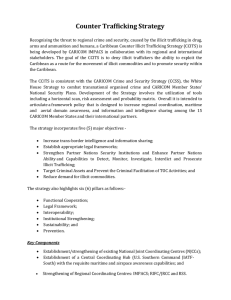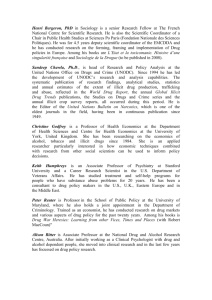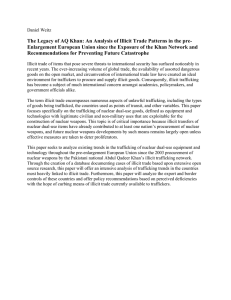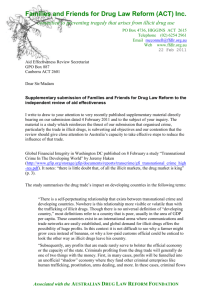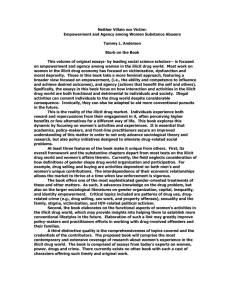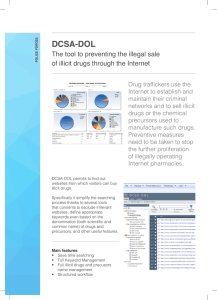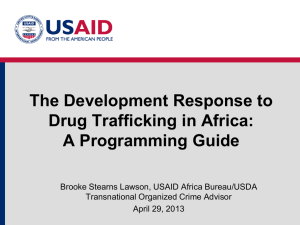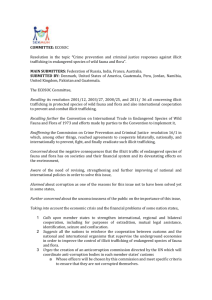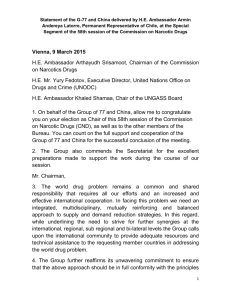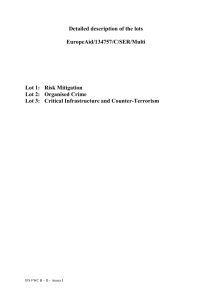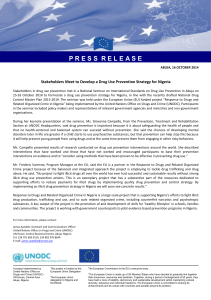English - Paper Smart
advertisement
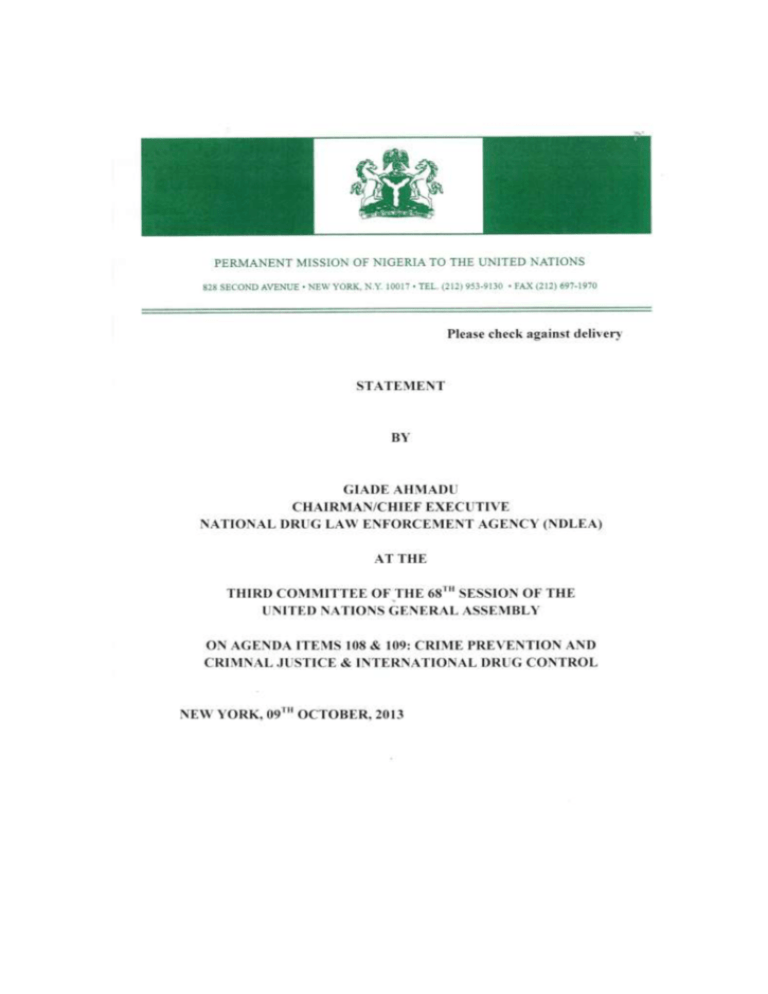
Mr. Chairman, Thank you very much for giving me the floor. We welcome the opportunity to discuss the problems of illicit drugs in this Committee under Agenda Items 108 & 109 respectively. The fight against the production, cultivation, distribution, possession and use of illicit drugs is a matter of priority to my Government, which is continuously demonstrated in its commitment to apply all measures within the law to address this issue. 2. Illicit drug production and trafficking remains a major concern for us in Nigeria. The government through its National Drug Law Enforcement Agency (NDLEA) has ensured integration of strategies in addressing the problem. The National Drug Control Master Plan (NDCMP), which serves as the country's road map in the fight against drug trafficking, was developed by an inter-Ministerial Drug Control Committee in response to the dynamic nature of illicit drug cultivation, trafficking and abuse. The first Master Plan was produced in 1999, the second in 2008 and, in collaboration with United Nations Office on Drug and Crime (UNODC) under the European Union (EU) support project, we have commenced the development of the 3rd edition of the NDCMP. 3. The NDCMP aims to address the drug problem through 4 main strategies: i. Control of illicit drug supply ii. Adequate and effective legal framework iii. Reduction of demand for drugs iv. Control of licit drug supply 4. The NDLEA has recorded remarkable success in controlling illicit drug supply through sustained interdiction, crop eradication and prosecution of drug traffickers. The Agency has also been taking measures to strengthen inter-agency cooperation, enhance international cooperation, and prioritize the sharing of information and intelligence with a view to curbing illicit drug supply. Between 2012 and 2013 substantial volumes of narcotic drugs have been seized and over 2000 hectares of cannabis farms have been destroyed. 2 5. In terms of the domestic legal frame work, the aim is to ensure adequate, deterrent and proportionate punishment to offenders. In this regard, convicted drug offenders have been denied the proceeds of their crime through robust anti-money laundering legislation and asset tracking and forfeiture. Nigeria has also taken steps to promote international judicial cooperation including extradition, mutual legal assistance and transfer of proceedings. 6. The Licit supply component of the Master Plan encourages compliance to requirements of the International Drug Control Treaties. In line with this, the National Agency for Food and Drug Administration and Control (NAFDAC) has put in measures to ensure that the importation, domestic manufacture, distribution, sale and use of Narcotic drugs and psychotropic substances are limited to medical and scientific purposes. NAFDAC has also embarked on capacity building for stakeholders. 7. The Drug Demand Reduction component highlights strategies for addressing different forms of drug abuse, misuse and drug dependence. Under this component, public enlightenment programmes for different target groups are being carried out and drug treatment services have been extended to drug dependent persons across the country. 8. In Nigeria, cannabis used to be the only locally produced drug but recently five methamphetamine production laboratories were discovered and shut-down. This has placed additional demands on drug law enforcement in the country. Trafficking in methamphetamine has assumed a new threat because of its rising price and demand in global markets. 9. This situation poses some concerns to enforcement authorities. The implications are that local drug syndicates will continue to devise ways of getting their drugs across to these markets. In the process, our youths remain the most vulnerable targets. Besides using them as drug mules, there is the risk of turning them into addicts. Above all, there is the fear of drug barons sponsoring violence and terror with laundered proceeds of drugs. 3 Mr. Chairman, 10. The NDLEA in 2012 won the conviction of 1,720 persons. The court however discharged and acquitted 18 others while 660 cases were pending as at December 31, 2012. A total of 1,237 persons had been convicted between January and July 2013. The Agency gives priority attention to prosecution of drug offenders in line with the provisions of the NDLEA Act. All cases are diligently investigated and pursued to a logical conclusion. Over the years, we have secured an average annual conviction of 1,500. We will continue to respect the rule of law and ensure that justice is served in all cases. 11. Drug control is a shared responsibility which calls for international cooperation. No country, no matter how powerful, can win the war on illicit drugs alone. It is for this reason that Nigeria maintains a close working relationship with several countries and this has helped us greatly in our efforts to combat illicit drug trafficking. Mr. Chairman, 12. The Nigerian government is deeply concerned about the protection of its image. We are committed to the dismantling of drug trafficking syndicates. The Agency will continue to fight money laundering. This is crucial to protect the economy from the activities of drug barons. We shall continue to build on our strengths and eliminate weaknesses in the days, months and years ahead. 13. Finally Mr. Chairman, we wish to reassure the international community that we shall relentlessly confront drug barons with all the resources at our disposal and with the cooperation and collaboration of our international partners. In view of the fact that drug trafficking is a global problem, we shall continue to partner with the international community in seeking better strategies to address the problem. A world free of illicit drugs is possible when we work together. 14. I thank you. 4
